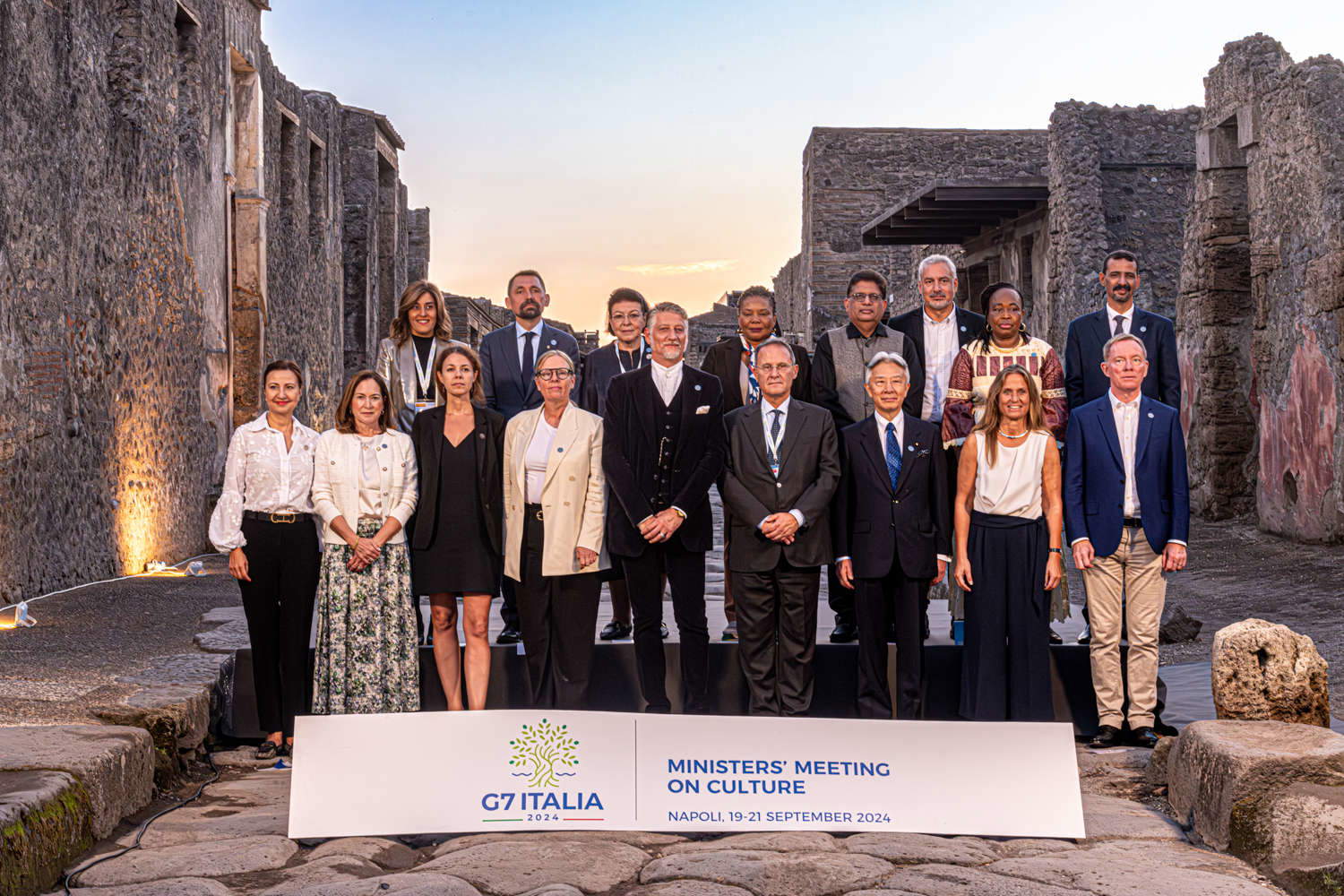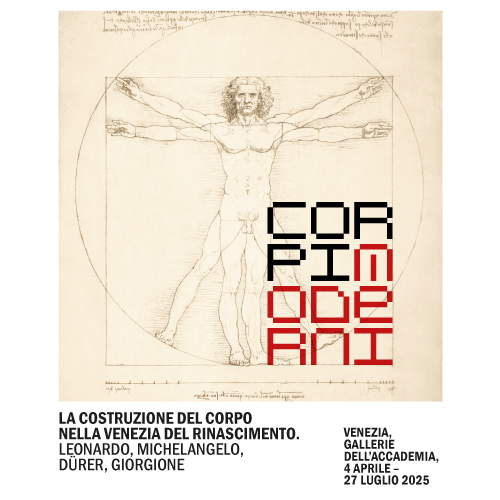G7 of Culture, second day under the banner of Africa. Naples Declaration approved
On the second and final day of the G7 Culture G7 in Naples,Africa was the focus of discussions among the G7 culture ministers. The meeting was also attended by representatives from the African Union, Brazil, Greece and India, as well as UNESCO, ICCROM and the African Development Bank. For the first time, the G7 Culture opened a dialogue with the continent, aiming to enhance African cultural heritage and foster economic development through culture, creating job opportunities and businesses. Culture Minister Alessandro Giuli stressed the importance of working in partnership with African governments, respecting their political choices, and highlighted how Italy is committed to offering expertise in restoration, archaeological research and training.
“For the first time, the G7 Culture G7 has opened up to dialogue with Africa, and this is one of the elements that I care most about and that have sketched this experience in a deeper way,” Giuli said. It is an initiative “that we conceived obviously in implementation of the Mattei Plan for Africa to create an international coalition to support the enhancement of African culture, its richness, its diversity, its ability to teach us something.” Africa, the minister went on to say, “has so many treasures that are not valued, which can create businesses, jobs and employment. The message we wanted to give is that the G7 and the other invited partners are ready to work with African governments to chorally foster this development, while respecting the sensitivities of African political choices, without any paternalistic logic, without any desire to return to the places of colonialism, with a sensibility that is not that of sharing a common geographic area of a single continent that we liked to call Eurafrica.”
Giuli spoke about the “Mattei Plan for Africa,” an Italian strategy launched in February to strengthen cooperation with the African continent, based on respect for the needs and sensitivities of African countries: an approach that, in the minister’s intentions, wants to distance itself from the colonial and paternalistic logics of the past.
The goal is to promote African culture as a tool for sustainable development, including the preservation and enhancement of archaeological sites, such as those in Tunisia and Eritrea, and of cultural industries, as in Nigeria. In addition, Italy is ready to support African countries in the inclusion of their sites in UNESCO heritage lists, together with other international partners.
In addition, at the end of the work, the G7 ministers approved and signed the Naples Declaration, dedicated to “Culture for the Sustainable Development of Africa and the World.” This is the text: We, the cultural leaders of the African Union, Brazil, Canada, the European Union, France, Germany, Greece, India, Italy, Japan, the United Kingdom and the United States of America, together with the heads of UNESCO, ICCROM and the African Development Bank;
Gathered in Naples on September 21, 2024, as part of the Italian presidency of the G7 2024; Emphasizing that culture is essential to the identity and prosperity of our nations, peoples and communities;
Convinced that all cultures of the world are equally entitled to respect, just as individuals are equal regarding access to culture;
Convinced of the importance of culture as a transformative engine and facilitator for achieving the Goals set forth in the United Nations 2030 Agenda for Sustainable Development;
Recognizing the progress made at the 28th UN Climate Change Conference 2023 (COP28) in integrating culture into global climate discussions; Recalling the importance of the creative economy to Africa’s prosperity because it provides opportunities for socio-economic growth, business and job creation, particularly for the younger generation;
Noting the outcomes of the UNESCO World Conference (2022) and the UNESCO “Naples Conference on Cultural Heritage in the 21st Century” (2023); We intend to work with African governments and the African Union to leverage culture as a key driver of sustainable development.
We are committed to building mutually beneficial partnerships based on the principles of respect for cultural identities, mutual understanding, freedom of expression, and co-creation of cultural content and activities.
We will promote knowledge sharing with African governments and cultural institutions and key stakeholders, including individuals and the private sector, to support efforts to strengthen cultural and creative sectors and industries; protect cultural property from illicit trafficking; promote, safeguard and sustainably manage cultural heritage; and strengthen Africa’s presence on UNESCO heritage lists.
We will leverage current efforts to integrate cultural considerations into the international climate agenda and national climate strategies and plans and promote the ecological transition of cultural and creative sectors and industries.
We call for the full recognition and integration of culture and the creative economy in development processes and policies, as well as in future discussions on how to advance sustainable development after 2030.
We will support culture and sustainable development in Africa by promoting partnerships and policies that are aligned with the development priorities of African governments and respect the cultural diversity and richness of African nations.
 |
| G7 of Culture, second day under the banner of Africa. Naples Declaration approved |
Warning: the translation into English of the original Italian article was created using automatic tools. We undertake to review all articles, but we do not guarantee the total absence of inaccuracies in the translation due to the program. You can find the original by clicking on the ITA button. If you find any mistake,please contact us.




























